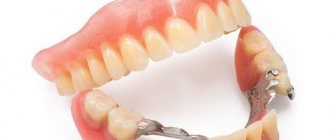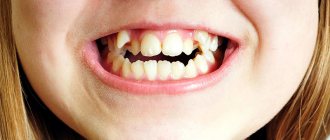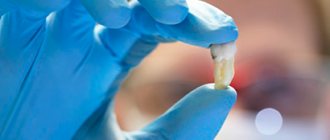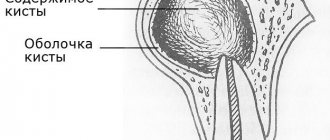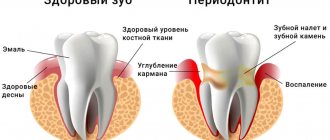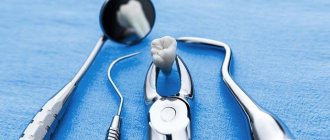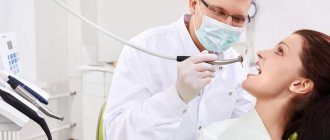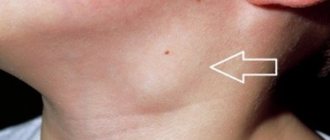Is it possible to treat teeth if you have a cold?
If the high temperature is caused by ARVI, herpes or other infectious diseases, then it is better to reschedule the appointment. The body at this moment is weakened and tuned to eliminate the disease, which means that the recovery process after dental treatment will be delayed. If you have a runny nose or cough, it will be difficult to sit in the dental chair during treatment. In addition, there is a high risk of spreading infection to the staff and other patients of the clinic.
However, there are situations when treatment cannot be delayed. In this case, you need to consult with your doctor, preferably by phone. He will decide whether to subject the weakened body to dental intervention or not.
How to get rid of toothache during a cold
If your tooth hurts , take a painkiller. This is sound advice that is given 100% of the time. Here are some more options for managing pain symptoms:
- Rinse your mouth several times with a water solution of salt and baking soda. The mixture has antibacterial properties and will prevent the spread of infection.
- Place a menthol tablet under your tongue. As it dissolves, menthol will have an anesthetic effect.
- Apply a compress with ginger root and rinse with sage infusion.
- Focus your energy on treating your cold - the faster the virus is cured, the sooner you will be seen by a dentist.
If these methods do not work and your toothache gets worse, be sure to call your dentist. Perhaps the development of symptoms is a consequence of dental disease. And here you cannot do without the prompt assistance of a specialist.
Colds on the lips - can you go to the dentist?
Herpes is a viral disease in which any intervention is contraindicated. An experienced dentist will not undertake treatment if he discovers herpes on the patient’s lips. During the manipulation, the virus can enter the mouth and cause stomatitis - this disease will require more complex and expensive procedures.
Treatment of herpes on the lips will take a little time - special means cope with the virus in 2-4 days. If you discover a cold on your lips before going to the clinic, do not risk your own health, reschedule your visit.
Result:
- Dental treatment for acute respiratory viral infections is contraindicated; exceptions are permissible only if there is a high risk of developing oral infections.
- Herpes on the lips is the reason the dentist refuses to treat the patient.
Remember - if the pain intensifies, local or general anesthetics do not help, the temperature rises and severe discomfort is felt in the tooth area, it’s time to call the doctor. In all other cases, it is better to postpone treatment until the period of complete recovery.
What if the cause of the elevated temperature is not a cold?
Often, an increase in temperature can be associated with inflammatory diseases in the oral cavity. For example, a cyst could form in a tooth or gum - a cavity filled with fluid. And elevated temperature is nothing more than the body’s reaction to protect itself from the spread of infection.
In an advanced state, the cyst affects neighboring teeth, so if you notice such symptoms, you need to consult a dentist.
By the way, a dental cyst is diagnosed using an x-ray - this is one of the reasons why it is necessary to undergo regular check-ups with a doctor. Treating the cyst at an early stage will protect you from possible complications, including tooth extraction.
Temperature as a sign of pathology
Immediately after a tooth is extracted, the open socket is in no way protected from infection. If the removal was simple, then after a few hours a film forms, blocking the path of pathogenic microorganisms. With complex extraction, the wound turns out to be too open and deep, so it takes much more time for the formation of natural protection. The overall healing period takes from 3 days to 2 weeks.
Extraction (removal) of a tooth in a person causes stress for the body on a psychological and physiological level. An increase in body temperature is a peculiar manifestation of the reaction to the procedure. Additional local symptoms are bleeding from the socket, swelling and redness of the gums. The patient's general health may also deteriorate, accompanied by weakness, dizziness, and sometimes nausea.
Many patients begin to worry whether there may be a fever after tooth extraction, because everyone knows that an increase in body temperature is a sign of an inflammatory process. However, dentists claim that this sign is just an indicator of tissue healing and stress suffered by the body. But only if there are no other symptoms of an unnatural process, the temperature does not rise above 37.5 °C and lasts no more than 3 days.
Temperature after dental treatment
A slightly elevated temperature after dental treatment is a normal reaction to intervention in the body’s tissues, especially after treatment of complex diseases (pulpitis, periodontitis). Sometimes weakness and drowsiness may appear, which can be relieved with antipyretics, but you should not get carried away with them.
If three days have passed after treatment and the fever does not go away, you should consult a doctor: he will conduct an additional examination and prescribe the necessary treatment.
What a high temperature may indicate
Dentists note that the temperature mainly increases after the removal of wisdom teeth, impacted units, or with a concomitant inflammatory process.
When a patient has a temperature of 38 °C or more for several days after wisdom tooth removal, the reason may be the development of:
- granulomas (nodular formations) - pathological formations form on the remains of roots that the doctor did not remove at the extraction stage;
- alveolitis (inflammation of the socket) - the provoking factor is violation of the dentist’s recommendations for wound care, perforation of the walls during surgery, weak immunity or inflammation of the throat;
- osteomyelitis - a process of purulent-necrotic damage to the jaw bone, with a high probability of abscess and gangrene;
- hematomas - occur when blood vessels are damaged during extraction and can provoke a purulent process and the formation of a cyst;
- infections - lack of proper care and antiseptic treatment will lead to rapid penetration of infection into the hole and the development of a pathological process.
After tooth extraction, the temperature may rise due to concomitant sinusitis. It is possible that the dentist may make mistakes, which, in addition to damaging the walls of the socket, may involve leaving foreign bodies (for example, a cotton swab) in the open wound or insufficient treatment of the socket.
When is fever considered a complication?
The main sign of pathological fever after installation of a dental implant is an increase in temperature above 37.5–38.0 degrees. Lower values are also abnormal if they last longer than three to five days after surgery and are accompanied by such phenomena as:
- persistent swelling of the mucous membranes, which can spread to facial tissues;
- Increasing pain, difficult to relieve with analgesics or unresponsive to drugs;
- unpleasant odor from the mouth, which can be caused by wound suppuration;
- enlargement of the submandibular lymph nodes is a sign of a developing infection.
The listed symptoms may indicate the onset of a complication, which is usually associated with the development of an acute inflammatory process in the tissues surrounding the artificial root. This pathology is called “peri-implantitis” and requires the fastest possible intervention by a dentist.
When to see a doctor
After wisdom tooth removal, a temperature of 37 °C without accompanying signs of inflammation is considered normal. There is no need to worry about such indicators. The temperature returns to normal within three days. No action needs to be taken.
You should consult a doctor if, after tooth extraction:
- the temperature lasts for 4 days or more;
- body temperature 38 °C or more;
- the pain does not decrease, but becomes more intense;
- there is severe swelling;
- after 2 days the wound bleeds;
- pus is released from the hole.
You can take medications on your own to lower your temperature if the reading is above 38°C. Touching the wound, trying to clean it, or using any traditional methods is not recommended. If you suspect complications after tooth extraction, you should visit your dentist.
How to relieve pain for a short time?
If toothache and high fever plague you all night, and the dentist will only open in the morning, try to calm the discomfort for a while. Here are some effective ways to relieve dental pain:
- Rinse your mouth. You can temporarily soothe toothache with the help of special rinses. The most effective pain reliever is Asepta Active mouth rinse, which combines a combination of anti-inflammatory, analgesic and antimicrobial components (chlorhexidine and benzydamine). This product provides the antiseptic effect of the rinse aid and at the same time relieves inflammation and pain.
- Apply essential oils. If the cause of high fever and toothache is pulpitis or periodontitis, you can apply a cotton swab moistened with essential oils of camphor, fir or clove to the inflamed area. If such products are not in the medicine cabinet, Corvalol and Valocordin will do. The tampon is kept in place for no longer than 20 minutes.
- Propolis will help you forget about pain for a couple of hours. You can rinse your mouth with a tincture solution or simply apply a bee product lozenge to your gum or sore tooth.
- Garlic, onion and salt also help with toothache. To prepare a natural medicine, you need to take these three products in equal parts, grind them into a puree, and then mix. The mixture should be applied to the inflamed area, cover the top with a tampon and hold for 20-30 minutes.
- When you have a toothache, it is recommended to stay in a horizontal position less, as this increases the volume of blood circulation in the periodontal tissues. It is strictly forbidden to heat the diseased area and chew food on the side of the diseased tooth.
- If the pain torments you and does not calm down, try to distract yourself before visiting the doctor: watch a TV series, do something you love, or just wash the dishes or do the cleaning. Remember, the more you think about the pain, the worse it becomes.
So, now you know how to briefly relieve toothache with fever, and hold out for a few hours before visiting the doctor. Be attentive to yourself and don't let your smiles slip away.
Periodontitis
This is a rather serious disease when periodontal tissue becomes inflamed. It develops if the infection from a tooth with pulpitis leaves its limits, accompanied by severe toothache.
Symptoms of periodontitis:
- Redness of the gums, swelling.
- Fever.
- Swelling of the cheek is quite possible.
- The lymph nodes under the jaws become large.
- Subjectively, it seems that the tooth suffering from periodontitis has grown in size.
Specialist help
In a situation where after tooth extraction the temperature remains at 38 °C, it is dentists who provide assistance. You should not waste time visiting a therapist or other specialist. It is advisable to contact the same doctor who performed the operation.
Treatment necessarily begins with diagnostics, which includes examination and x-rays. Once the cause of the patient’s pathological condition is identified, methods for eliminating it are determined.
Treatment methods depend on the factor that provoked the increase in temperature:
- incomplete removal of the tooth root, formation of a cyst or granuloma - cleaning the hole, treating with an antiseptic, prescribing antibiotics;
- damage to soft tissues - cleansing (in case of a purulent process), treatment with an antiseptic solution, suturing and prescribing antibiotic drugs;
- infection of the socket - high-quality cleaning of the socket, installation of drainage, treatment of the wound with an antiseptic, prescription of a course of antibiotics, removal of the drainage, repeated antiseptic treatment;
- osteomyelitis - opening of the gums, cleansing the bone from nicrotic tissue, applying a medicinal application, antiseptic treatment, taking antibiotics, re-diagnosis, removing the application and suturing.
After treatment, body temperature may also rise within normal limits. Rehabilitation will be more difficult and longer.
Dentists advise monitoring body temperature after tooth extraction, especially if it is a complex operation. To reduce the risk of complications, you should strictly follow all doctor's recommendations. If pathological symptoms appear, there is no need to ignore them. Even a preventive visit to the dentist can prevent serious consequences.
Prevention methods
The main preventive measure, as we mentioned earlier, is regular dental examinations. Even not the most serious symptoms are grounds for a visit. General recommendations include regular dental and oral hygiene and taking vitamin supplements high in calcium. This will help avoid toothache and inflammation.
It is important to maintain oral hygiene
How to help yourself at home with a hyperthermic reaction
After extraction of a molar, canine or incisor, the surgeon will give recommendations and explain possible reactions of the body. Therefore, the patient must follow the rules of oral care:
- Do not consume food or drinks for 2 hours after the procedure. Do not chew on the affected side of the jaw.
- Take antibiotics as prescribed by your doctor, rinse your mouth with antiseptic solutions.
- If your temperature rises, you need to monitor your condition. It is allowed to take antipyretics based on paracetamol or ibuprofen as prescribed by a doctor. For adults - in tablet form, for children - in the form of syrups in dosages according to age or suppositories at night or during daytime sleep.
- Drinking plenty of fluids and rest are recommended. The patient should be in a ventilated area. There is no need to wrap yourself up or do any thermal procedures.
What you can and cannot do after tooth extraction
If the temperature does not subside on its own or the condition worsens, you should contact a medical facility. If it rises to 39 degrees or higher, call an ambulance.
In what other cases does hyperthermia occur?
A visit to a maxillofacial surgeon and surgery is a stressful situation. The temperature can rise even against the background of emotional experiences.
Possible reasons for the increase in temperature after molar extraction:
- ARVI, acute respiratory infections, relapse of tonsillitis - intervention in the oral cavity causes a decrease in immunity. Therefore, surgery can be a provoking factor in chronic sore throats, making the patient more susceptible to pathogenic flora. Rhinorrhea, sneezing, coughing, and pain when swallowing are added to hyperthermia.
- Alveolitis is an infection of the tooth socket. After its removal, a blood clot forms in the socket.
- Its task is to prevent wound infection. If the doctor's recommendations are not followed - eating, chewing on the operated side, frequent rinsing - the clot detaches and the wound becomes infected. The result is inflammation, pus, severe pain and an increase in temperature to pyretic values.
- Mistakes by a dental surgeon when removing a tooth include excessive tissue trauma, leaving fragments and parts of the root in the socket.
If any unpleasant symptoms appear after removal of a molar, incisor or molar, you should contact an oral and maxillofacial surgeon.
Why is dental treatment not recommended for sore throat?
A sore throat prevents you from opening your mouth wide, as dentists like. The patient will not sit through the entire procedure with inflamed and tense tissues of the pharynx, and the doctor will not provide the service of the required quality.
In addition, fear of the dentist, layered with fever and sore throat, will cause additional stress and completely undermine the body.
In bacterial forms of sore throat, the tongue is heavily coated with plaque containing microorganisms. This is a danger to the doctor and the patient’s health (autoinfection).
If we summarize all of the above, it turns out that it is better to reschedule the visit to the clinic. After all, with such strong-willed decisions, dentists take care of the health of both themselves and their patients. But sometimes these rules are deviated from in order to help people with sore throats.
When is tooth extraction necessary?
Modern dentistry gives preference to treating teeth to preserve them, but there are pathologies that require removal due to the high risk of complications.
The procedure can be performed urgently or planned. If the tooth is removed after preliminary preparation, the likelihood of complications is minimized. With emergency extraction, negative consequences occur more often. The following pathologies may be indications for tooth extraction:
- damage to the root canal or root;
- periodontitis or periodontitis;
- deep caries, accompanied by significant destruction of the crown;
- advanced hypoplasia;
- neoplasms in the tooth area;
- planned installation of an orthopedic or orthodontic structure;
- developmental anomalies.
Depending on the indications, tooth extraction can be performed using a simple method or surgically. The more tissue is injured, the more severely the body reacts to the intervention.
Periostitis
If periodontitis is not treated on time, it can turn into an even more unpleasant disease - periostitis , when inflammation affects the jaw bone and flux forms in the periosteum. An abscess appears near the diseased tooth, from which in severe cases pus leaks out. Periostitis is characterized by fever , toothache , swelling of soft facial tissues , swelling of several teeth, gums, and poor general health. The pain sometimes moves, for example, to the temples and ears.


